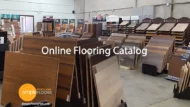Living green in Portland, Oregon, comes naturally. With its lush greenery, thriving cultural hubs, and eco-friendly initiatives all around us, this city makes it both easy and enjoyable to make the most of our time here while also protecting the world we live in.
Whether you’re just getting into living a greener lifestyle or have been doing so for years, there are plenty of ways to reduce your impact on nature without compromising your quality of life – from finding food that’s not only delicious but cruelty-free or sustainably sourced to hopping onto a bike instead of driving wherever you go.
Eco-Friendly Product
Shop for eco-friendly products that use renewable resources and have a minimal impact on the environment.
Shopping for eco-friendly products that use renewable resources and have a minimal impact on the environment is an adventure worth taking! Living in Portland, Oregon, you can find a diverse range of sustainable goods available in both online and physical stores. From pre-made meals to clothing made from organic cotton, you can show your commitment to the environment while experiencing amazing, top-notch quality. Whether you opt for upcycled items from flea markets or artisanal products from farmers’ markets, exploring your options has never been so fun and fulfilling. Who knew being eco-friendly could be such a rewarding way to support our community and planet?
Participate In Events Promoting Sustainable Living
Portland, Oregon, is the perfect place to participate in various events promoting sustainable living. From beach clean-ups to vegan cooking classes, community gardens, and more, you can join forces with fellow eco-activists and make an impact for our planet.
Go Green for Your Transportation
Living in Portland, Oregon, is truly a special experience. Not only are there plenty of sights to explore and delicious eats to try, but it’s also an environmentally conscious city. So to maximize your eco-friendly lifestyle and reduce your carbon footprint, why not get involved with green transportation options like bike sharing or carpooling?
You may find that you enjoy the freedom of bicycling or the fun conversations during carpooling–you’ll be commuting green while having a good time! Plus, you can feel proud knowing that you’re doing your part for our planet.
Use Your Own Bags
Using your own bags goes beyond canvas bags for hauling your groceries and other purchases. You can bring your own reusable bags for items like vegetables and fruits. And you can bring your own containers for bulk products.
You should consider shopping where there is a butcher available. Did you know that you can have a whole chicken broken down for the same price? That makes it easier for you to cook the meals that you want instead of trying to figure out leftovers. And you can get it packaged in butcher paper.
When you order from the local deli counter and use your own bags, you’re reducing the amount of packaging waste used in cheeses and deli meats.
If you use your own containers (including glass jars with sealable lids), you’ll want to have an easy-to-access record of the weight of the containers so the person doing your checkout can remove the extra weight.
Finally, go to farmer’s markets to help directly support farmers and bring your own cloth bags for your goodies.
Eat Locally Sourced Food
If you’re looking for a delicious and meaningful meal in Portland, you should definitely try one of the city’s many eateries that focus on sustainability and locality. Eating locally-sourced food not only promises to be incredibly fresh and flavorful but also helps support communities and small farmers as well as reduce your carbon footprint.
Whether your cravings lean toward Mexican street food or farm-to-table vegan Italian cuisine, you can experience the freshest ingredients with minimal environmental impact in Portland restaurants committed to these practices.
A Few Other Quick Tips
Composting is another effective way to reduce waste and create nutrient-rich soil for gardening. And one of the easiest ways to get started is by using grounds from your local coffee shop!
Coffee grounds are a great addition to compost piles as they contain nitrogen, phosphorus, and potassium – essential nutrients for plant growth. Plus, you can easily collect them from your favorite cafe or ask baristas if they have any used grounds available.
Once you get started, don’t forget to add in your food scraps as well as used tissues and paper napkins to provide brown materials to your compost.
You may want to consider switching from paper napkins to cloth napkins at some point. It adds an easy and elegant touch to any meal.
What if we told you that getting free (or near free) feed for your chickens could be as easy as visiting a local brewery or distillery? It may sound too good to be true, but it’s quite possible. With spent grain from breweries and distilleries, you can add this to your normal chicken feed providing a meal that is both nutritious and cost-effective. Not only will this help keep your flock healthy, but it also helps reduce waste and supports local businesses in the process.
Avoid single-use food and drink containers and utensils. It’s easy to bring your own. And consider buying a water bottle to bring everywhere.
Donate and recycle what you can instead of throwing things away. And consider buying things from thrift stores. Secondhand clothes would appreciate a second chance. And if you are crafty, you can upcycle your finds into something uniquely you.
Portland is an amazing city, full of passionate people who care about the environment. By embracing sustainable practices, we can contribute to preserving our beautiful green spaces and ensuring a healthy future for all.
What starts here can spread down the road by educating others and introducing them to green living. Whether you’re reducing your carbon footprint with bike sharing or opting for eco-friendly products, every action counts towards making a difference in the lives of so many. So take the opportunity to explore this side of Portland and get creative about how you will help make our community more sustainable.
For more tips, watch this video below:









